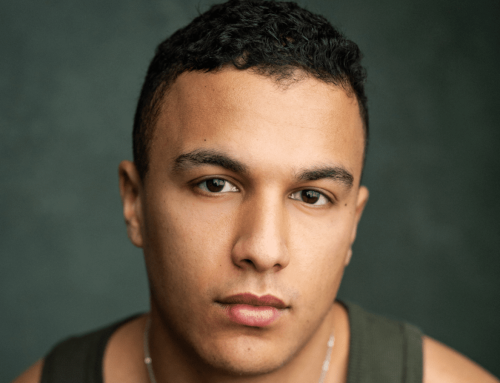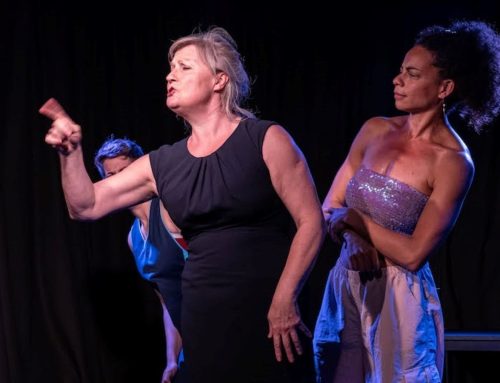David Moorhead’s touching and intelligent one-woman play, Forgotten Voices, combines two narratives in one. The first is an intimate and heartfelt personal tribute to the exploits of a courageous grandmother, Eva Moorhead Kadalie (Shareesa Valentine). The second looks at the extraordinary events of Kadalie’s life within the context of South Africa’s decades-long struggle for genuine democracy. Both stories are worth hearing.
Set in 1956 on-board a steamer about to set sail from apartheid South Africa for Britain, Forgotten Voices is structured as an episodic retelling of the events of Kadalie’s early life in the form a conversation between the protagonist and the city she refers to as her ‘sister’, Durban. The shipboard setting communicates what is, in effect, the moment of exile from the protagonist’s native land. It is a stark evocation of the talent South Africa loses during the horror years of apartheid.
Born to a black mother, Kadalie’s white father declines to acknowledge her existence. She grows up with a passion for learning. But in a nation that sees ‘native’ South Africans as unworthy of education, her main route to knowledge is through the books she devours. Experience of war-work in a factory in which an 8-foot wall separates better paid white workers from their black and mixed-race counterparts spurs an enthusiasm for trade unionism. Overcoming gender barriers in a male dominated trade union environment, she eventually falls in love with South Africa’s first national black trade union leader. After an extended period of imprisonment for organising rail strikes, the couple find themselves penniless. Without money enough for medicine, she loses an infant daughter to a curable fever. Her white son, Bobby, born during a period of marital estrangement, is removed from her brother’s loving black home. She spends a period in a psychiatric hospital, literally handcuffed to her bed.
Director Margaret Connell brings out a convincing, absorbing, and technically assured performance from Valentine as the determined and resilient Kadalie. Indeed, the actor gives a welcome depth of emotional light and shade to what is a sometimes dense 75-minutes of biographical storytelling. There is plenty of welcome character-revealing detail in Moorhead’s script. There is something missing though, which is a sense of change in Kadalie over the years. The hero feels essentially the same person aged 18 as she does on the cusp of exile, four decades later. That gripe aside, this is a worthy and engaging story, and a salient reminder that any fight for freedom depends on thousands of acts of bravery, some large, some small and forgotten, but all in their own way significant.
Writer: David Moorhead
Director: Margaret Connell
15 October 2022
Duration: 75 Minutes. No interval.

More Recent Reviews
Playfight. Soho Theatre.
Writer Julia Grogan’s breathtakingly assured debut play arrives at Soho Theatre following stellar reviews at the Edinburgh Fringe and [...]
All The Happy Things. Soho Theatre.
Naomi Denny’s three-hander comedy-drama All The Happy Things covers familiar themes within a recognisable premise. A grieving protagonist comes [...]
Telly. Bread and Roses Theatre.
The challenge with absurdist comedy is that many people do not find it funny. Laughing at the sheer weirdness [...]



